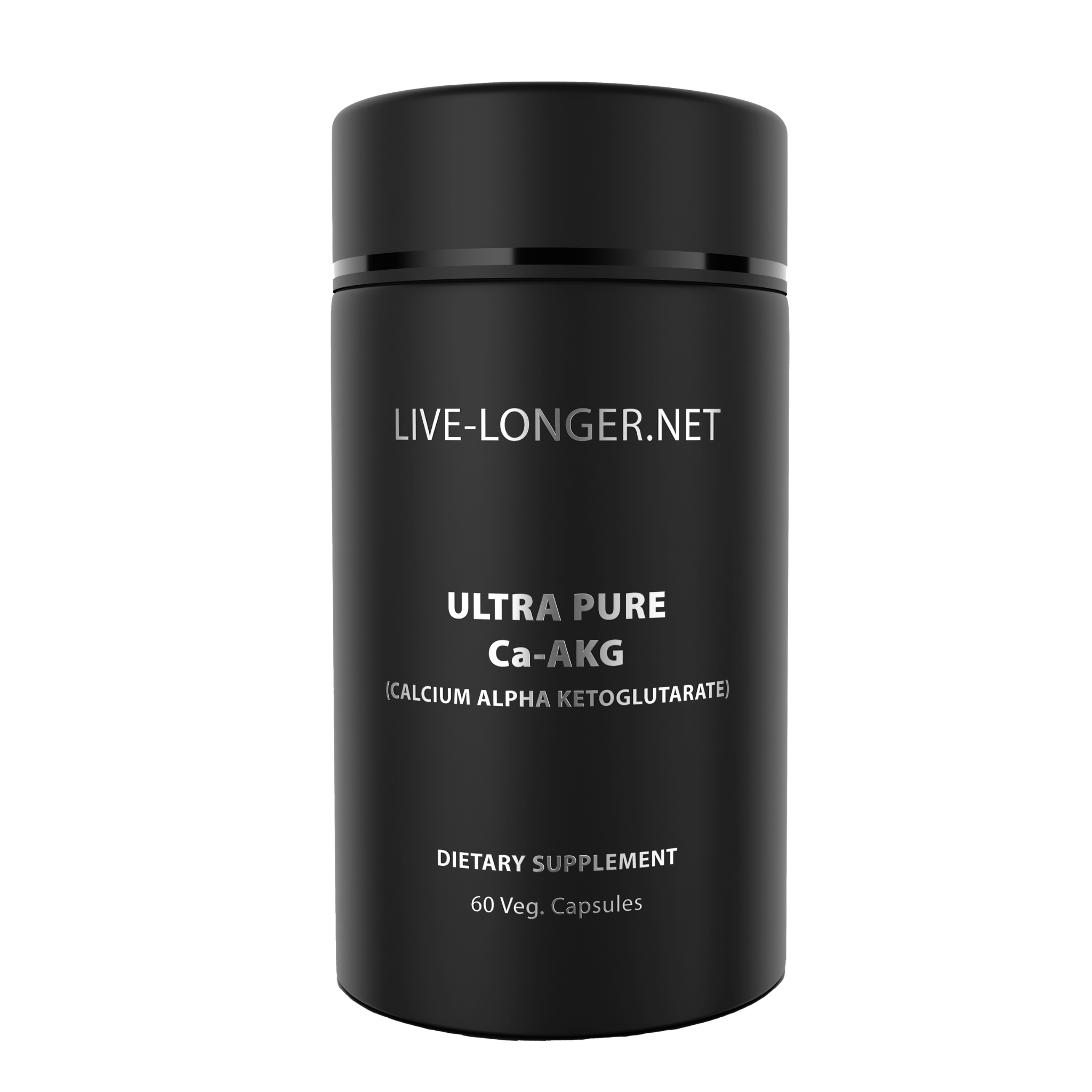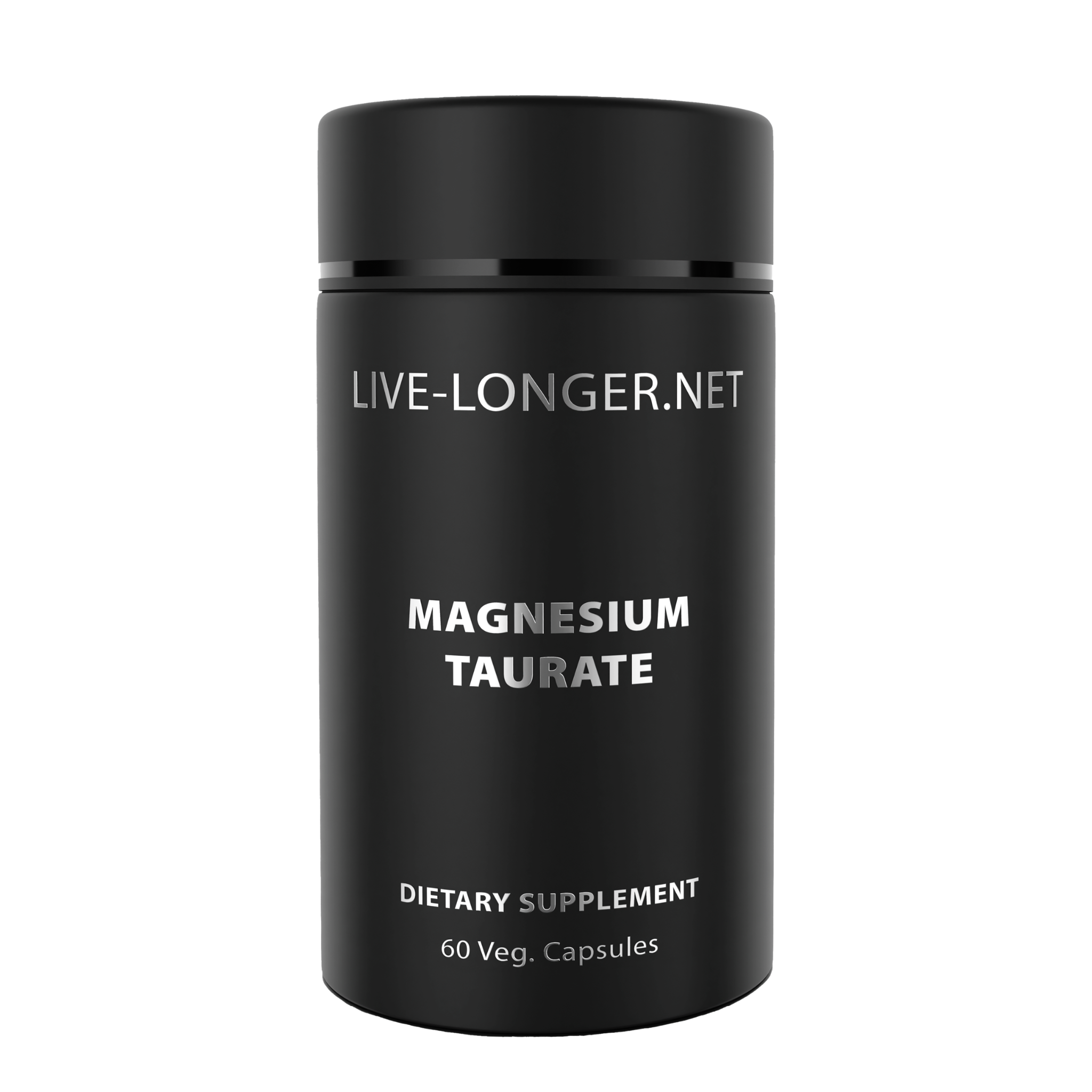Calorie restriction (CR) has become a buzzword among health-conscious individuals seeking ways to enhance longevity and improve overall well-being. At its core, calorie restriction involves reducing daily caloric intake while maintaining proper nutrition, a practice that has intrigued scientists for decades. Many believe it holds the potential to delay aging and extend lifespan.
Aging is a natural process influenced by genetic, environmental, and lifestyle factors. While we cannot stop the clock, research suggests that our choices might influence how we age. Calorie restriction and aging have been extensively studied, particularly for their connection to slowing down biological aging and reducing the risk of age-related diseases.
In this article, we'll discuss the science behind calorie restriction, its potential benefits and risks, and practical tips for incorporating its principles into your lifestyle. The goal is to provide a balanced perspective, empowering you to make informed decisions about whether this practice aligns with your health goals.
What is Calorie Restriction?
Calorie restriction (CR) is the practice of reducing calorie intake below typical levels without depriving the body of essential nutrients. Unlike crash diets or intermittent fasting, calorie restriction focuses on long-term sustainability, emphasizing balance and proper nutrition. This approach ensures that while fewer calories are consumed, the body still receives adequate vitamins, minerals, and macronutrients.
The concept of calorie restriction and aging has its roots in scientific research dating back to the 1930s [1]. Initial studies on rodents revealed that animals on calorie-restricted diets lived significantly longer than their counterparts on normal diets. These findings sparked interest in whether similar effects might apply to humans [2]. Over the decades, research expanded to include primates and, more recently, humans, offering fascinating insights into how reduced caloric intake may influence the aging process.
A key distinction is that calorie restriction is not about extreme deprivation. Instead, it's about eating smarter, focusing on nutrient-dense foods while avoiding empty calories. Calorie restriction promotes cellular repair and reduces damage from free radicals, which are linked to aging [3]. While the exact mechanisms are still being studied, calorie restriction remains a promising area of research in the quest for healthy aging.
The Science Behind Calorie Restriction and Aging
The connection between calorie restriction and aging has intrigued researchers for decades, largely because of its promising effects in animal studies. In human studies, calorie-restricted diets have been shown to extend lifespan. These results suggest that consuming fewer calories while maintaining adequate nutrition can delay the onset of age-related diseases and promote healthier aging [4].
Reduced Oxidative Stress
One of the key mechanisms thought to link calorie restriction and aging is reduced oxidative stress. Oxidative stress occurs when free radicals, unstable molecules produced during normal metabolic processes, damage cells.
Over time, this damage accumulates, contributing to aging and diseases such as cancer and cardiovascular conditions [5]. Calorie restriction appears to decrease the production of free radicals, allowing cells to function more efficiently and experience less wear and tear.
Improved Metabolic Efficiency
When calorie intake is reduced, the body prioritizes essential functions, enhancing processes like autophagy—a natural cellular "clean-up" mechanism that removes damaged cells and proteins. This reduction in cellular debris may explain why calorie restriction has been linked to improved organ function and slower biological aging [6].
Human studies on calorie restriction also still provide valuable insights. For example, the CALERIE (Comprehensive Assessment of Long-term Effects of Reducing Intake of Energy) trial found that moderate calorie restriction in adults led to improved metabolic health markers, such as reduced cholesterol levels and inflammation [7].
Emerging research is also exploring calorie restriction mimetics—compounds that mimic the effects of calorie restriction without requiring a reduced caloric intake. While the science is promising, it's important to remember that calorie restriction and aging are influenced by numerous factors, including genetics and lifestyle.
Potential Benefits of Calorie Restriction for Aging
Calorie restriction has shown potential benefits for aging, many of which revolve around improving metabolic health and delaying the onset of age-related diseases. By consuming fewer calories while maintaining proper nutrition, the body undergoes physiological changes that could promote healthier aging.
One significant benefit linked to calorie restriction and aging is improved metabolic health. Studies suggest that CR can reduce the risk of conditions like type 2 diabetes, hypertension, and cardiovascular diseases, all of which become more prevalent as we age [8]. Lower calorie intake has been shown to improve insulin sensitivity, reduce cholesterol levels, and decrease systemic inflammation—key factors in preventing chronic diseases [9].
Another promising area is cognitive health. Research indicates that calorie restriction may protect the brain from age-related decline, potentially reducing the risk of neurodegenerative diseases such as Alzheimer's [10].
Calorie restriction has also been linked to slower biological aging, which refers to the aging of cells and tissues, as opposed to chronological age. By reducing oxidative damage and improving cellular repair mechanisms like autophagy, CR may help cells maintain functionality for longer. This, in turn, might contribute to healthier skin, better organ function, and greater vitality in older age [11].
Despite these promising findings, it's important to emphasize that not everyone will experience the same benefits. Factors such as genetics, lifestyle, and adherence to a balanced CR approach play a crucial role. Moreover, while calorie restriction may slow certain aspects of aging, it is not a guarantee of a longer lifespan. For many, the focus should be on improving the quality of life rather than solely extending its duration.
Risks and Challenges of Calorie Restriction
While the potential benefits of calorie restriction and aging are compelling, this practice also comes with risks and challenges, particularly for older adults and those with specific health conditions. Understanding these risks is essential for anyone considering CR as part of their lifestyle.
One of the primary concerns is the risk of nutritional deficiencies. Reducing calorie intake too drastically can lead to insufficient levels of essential vitamins, minerals, and proteins, which are vital for maintaining muscle mass, bone density, and overall health. For aging individuals, who may already face challenges like reduced muscle mass (sarcopenia) or weakened bones (osteoporosis), this risk becomes even more pronounced.
Another challenge is the potential for fatigue and decreased energy levels. Consuming fewer calories means the body has less fuel for physical and mental activities, which can impact productivity and overall quality of life. This is particularly problematic for individuals with active lifestyles or those recovering from illness.
Psychological impacts are another consideration. For some, strict calorie restriction can lead to an unhealthy obsession with food, potentially triggering or exacerbating disordered eating patterns. This risk underscores the importance of maintaining a balanced approach and seeking professional guidance.
Lastly, calorie restriction is not suitable for everyone. Individuals with pre-existing conditions, such as diabetes or autoimmune disorders, should approach CR cautiously and under medical supervision. It's also worth noting that what works for one person may not work for another, making personalized advice essential.
Practical Tips for a Balanced Approach
For those intrigued by the potential of calorie restriction and aging, a balanced and sustainable approach is key. Drastic calorie cuts are neither practical nor safe for most people, especially those with unique health needs of older adults who require sufficient nutrients to maintain vitality.
The first step is to prioritize nutrient-dense foods. Focus on vegetables, fruits, lean proteins, whole grains, and healthy fats to ensure your body receives the necessary vitamins and minerals even with reduced caloric intake. Avoid empty calories found in sugary snacks, processed foods, and soft drinks, which contribute little to overall health.
Portion control can be an effective way to practice calorie restriction without feeling deprived. Instead of skipping meals or engaging in extreme fasting, simply reduce serving sizes slightly and eat mindfully. Paying attention to hunger cues and eating slowly can help prevent overeating.
Incorporating regular physical activity is equally important. Exercise complements calorie restriction by preserving muscle mass, boosting metabolism, and promoting overall well-being. Low-impact exercises like walking, yoga, or swimming can be particularly beneficial for older adults.
Finally, consult a healthcare professional before beginning any calorie-restricted diet. A registered dietitian or doctor can provide personalized guidance, ensuring that your approach supports both healthy aging and overall well-being.
The Takeaway
Calorie restriction and aging are closely intertwined in ongoing scientific research, offering promising insights into how reduced caloric intake may influence the aging process.
Calorie restriction has been associated with better metabolic health, reduced risk of chronic diseases, and even improved cognitive function. However, it also carries risks, particularly for older adults or individuals with specific health conditions. Nutritional deficiencies, fatigue, and psychological impacts are all concerns that should not be overlooked.
For those considering calorie restriction, the key is balance. Small, sustainable changes—such as focusing on nutrient-dense foods, controlling portions, and incorporating regular physical activity—can help harness the benefits of CR without compromising overall health. Always seek professional advice to ensure that any dietary changes align with your unique needs and goals.
Ultimately, the goal is not just to extend lifespan but to enhance the quality of life. Aging involves a combination of healthy habits, and while calorie restriction may play a role, it is just one piece of the larger puzzle. Focus on sustainable, evidence-based practices that support both your body and mind.
References
- Weindruch R. Calorie Restriction and Aging [Internet]. Scientific American. 2006 [cited 2025 Jan 6]. Available from: https://www.scientificamerican.com/article/calorie-restriction-and-aging/
- Taormina G, Mirisola MG. Calorie Restriction in Mammals and Simple Model Organisms. BioMed Research International [Internet]. 2014 [cited 2025 Jan 6];2014:1–10. Available from: https://pmc.ncbi.nlm.nih.gov/articles/PMC4026914/
- Vitantonio AT, Dimovasili C, Mortazavi F, Vaughan KL, Mattison JA, Rosene DL. Long-term calorie restriction reduces oxidative DNA damage to oligodendroglia and promotes homeostatic microglia in the aging monkey brain. Neurobiology of Aging [Internet]. 2024 Sep 1 [cited 2025 Jan 6];141:1–13. Available from: https://www.sciencedirect.com/science/article/abs/pii/S0197458024000964
- Redman LM, Ravussin E. Caloric Restriction in Humans: Impact on Physiological, Psychological, and Behavioral Outcomes. Antioxidants & Redox Signaling [Internet]. 2011 Jan 15;14(2):275–87. Available from: https://pmc.ncbi.nlm.nih.gov/articles/PMC3014770/
- Pizzino G, Irrera N, Cucinotta M, Pallio G, Mannino F, Arcoraci V, et al. Oxidative Stress: Harms and Benefits for Human Health. Oxidative Medicine and Cellular Longevity [Internet]. 2017 Jul 27;2017(8416763):1–13. Available from: https://www.ncbi.nlm.nih.gov/pmc/articles/PMC5551541/
- Shabkhizan R, Haiaty S, Moslehian MS, Bazmani A, Sadeghsoltani F, Saghaei Bagheri H, et al. The Beneficial and Adverse Effects of Autophagic Response to Caloric Restriction and Fasting. Advances in Nutrition [Internet]. 2023 Jul 30;14(5):1211–25. Available from: https://www.ncbi.nlm.nih.gov/pmc/articles/PMC10509423/
- Stewart TM, Bhapkar M, Das S, Galan K, Martin CK, McAdams L, et al. Comprehensive Assessment of Long-term Effects of Reducing Intake of Energy Phase 2 (CALERIE Phase 2) screening and recruitment: Methods and results. Contemporary Clinical Trials [Internet]. 2013 Jan;34(1):10–20. Available from: https://pubmed.ncbi.nlm.nih.gov/22981898/
- Procaccini C, Paola de Candia, Claudia Cecilia Russo, Giusy De Rosa, Maria Teresa Lepore, Colamatteo A, et al. Caloric restriction for the immunometabolic control of human health. Cardiovascular Research [Internet]. 2023 Feb 27 [cited 2025 Jan 6]; Available from: https://doi.org/10.1093/cvr/cvad035
- Kökten T, Hansmannel F, Ndiaye NC, Heba AC, Quilliot D, Dreumont N, et al. Calorie Restriction as a New Treatment of Inflammatory Diseases. Advances in Nutrition [Internet]. 2021 Feb 8 [cited 2025 Jan 6];12(4):1558–70. Available from: https://pmc.ncbi.nlm.nih.gov/articles/PMC8321869/
- de Carvalho T. Calorie restriction or dietary restriction: how far they can protect the brain against neurodegenerative diseases? Neural Regeneration Research [Internet]. 2022 [cited 2025 Jan 6];17(8):1640. Available from: https://pmc.ncbi.nlm.nih.gov/articles/PMC8820686/
- Donati A, Cavallini G, Bergamini E. Effects of aging, antiaging calorie restriction and in vivo stimulation of autophagy on the urinary excretion of 8OHdG in male Sprague–Dawley rats. AGE [Internet]. 2012 Feb 16 [cited 2025 Jan 6];35(2):261–70. Available from: https://link.springer.com/article/10.1007/s11357-011-9346-x








